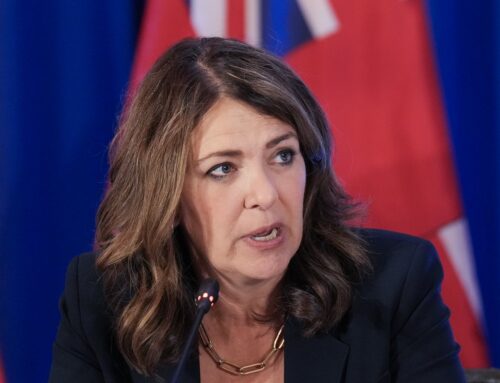
Federal Health Minister Rona Ambrose said the government’s priority should be quality palliative care, not assisted suicide.
Federal Minister of Health Rona Ambrose says Canadians don’t need assisted suicide and euthanasia when it comes to dying, but better palliative care, something she says she wants to make a priority.
“I think the starting point for me is that we still don’t have the best elderly care and palliative care yet,” Ambrose told the CBC. “So let’s talk about making sure we have the best end-of-life care before we start talking about assisted suicide and euthanasia.”
Ambrose’s comments come at a time when Quebec has recently passed legislation to allow assisted suicide under the name of “medical aid in dying,” and the Supreme Court is about to hear a case that seeks to grant Canadians the right to kill themselves with assistance.
Added to this is the Canadian Medical Association passing a resolution recently allowing physicians to follow their conscience in deciding to provide or withhold euthanasia to a patient within the bounds of legislation. Dr. Chris Simpson, the head of the association, recently stated that euthanasia is an “appropriate” choice when all else fails.
Ambrose said the federal government can do much to help palliative care initiatives. “While some people think, ‘leave it to the other jurisdiction,’ I’m a big believer in national initiatives. I think the federal government has a huge amount of knowledge, capacity, power, authority to act within the health care system,” she said.
In 2011, the all-party Parliamentary Committee on Palliative and Compassionate Care issued a report, “Not to be Forgotten: Care of Vulnerable Canadians,” which called on all levels of government to improve palliative care. Euthanasia Prevention Coalition executive director Alex Schadenberg said studies show those considering euthanasia or doctor-assisted suicide fear pain, suffering, and isolation, and that the parliamentarians have developed a strategy to address those issues.
In 2011, the PCPCC made 14 recommendations including urging the federal government to re-establish a palliative care secretariat to support research and facilitate collaboration between various levels of government and to develop a “national palliative and end-of-life care strategy” along with greater flexibility in the provision of palliative care services, a palliative care awareness campaign, the improvement of home care palliative services for rural and Indian communities, and establishing a National Pain Strategy to properly control pain. Three years later, the government has not implemented any of the recommendations.
Parts of this article originally appeared Sept. 16 at LifeSiteNews and is used with permission.




